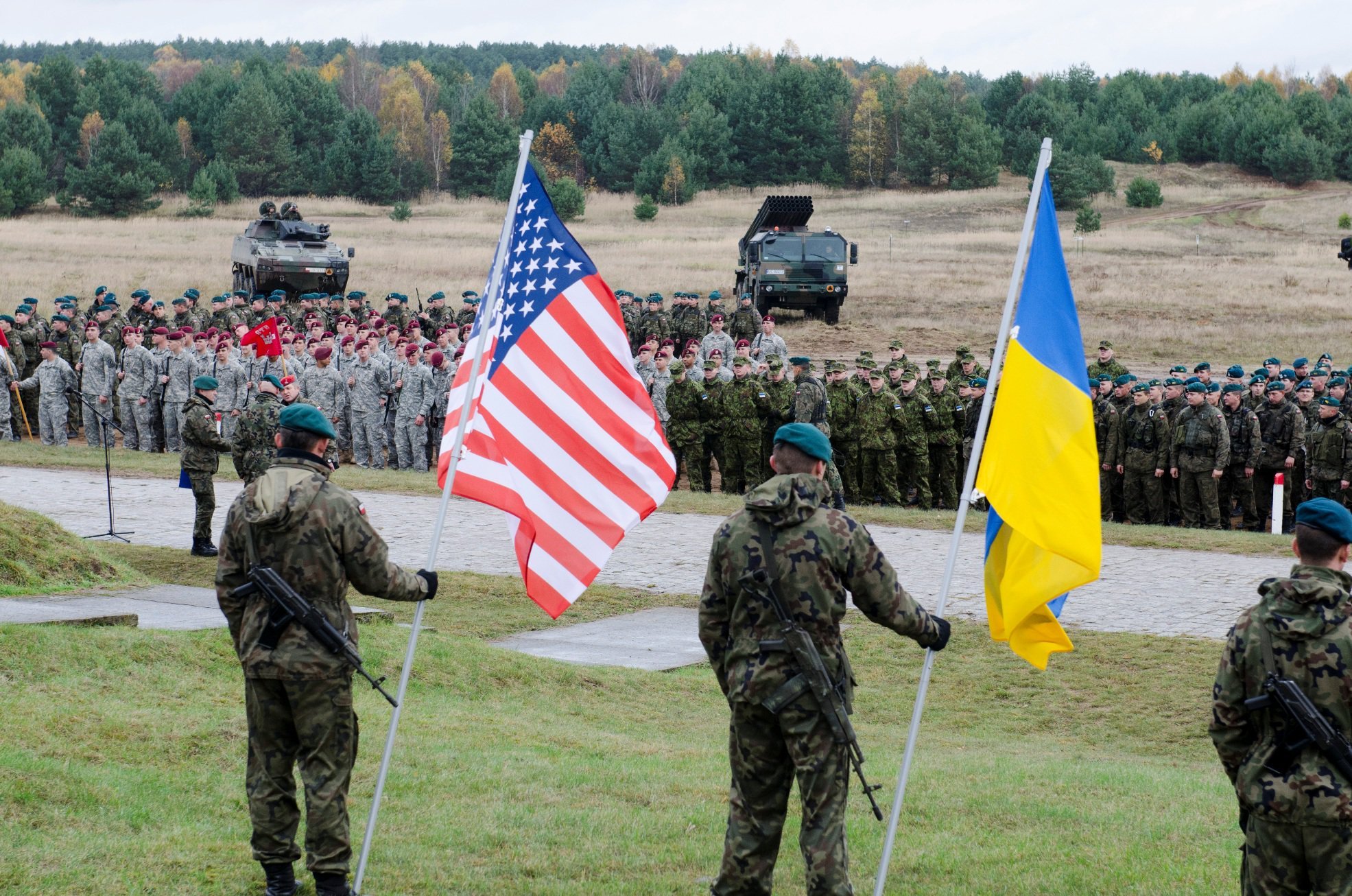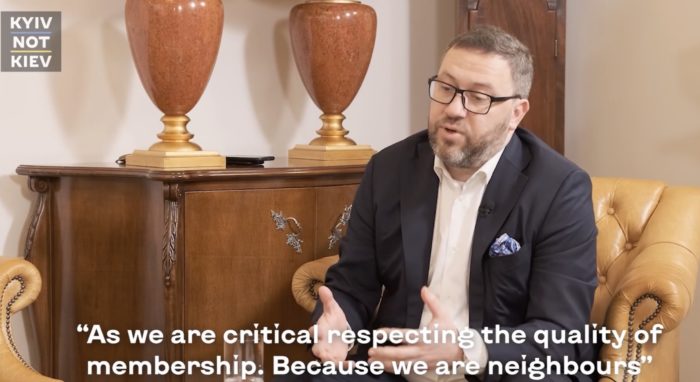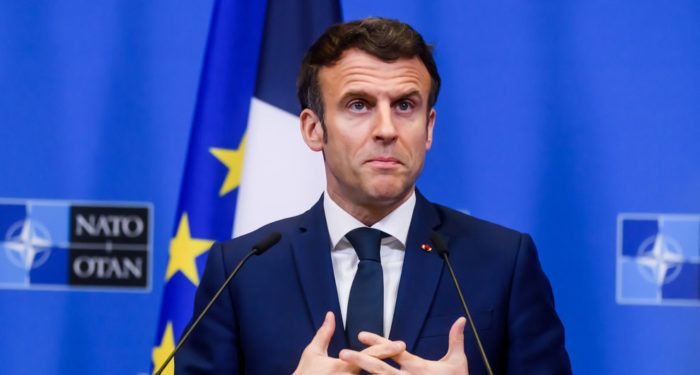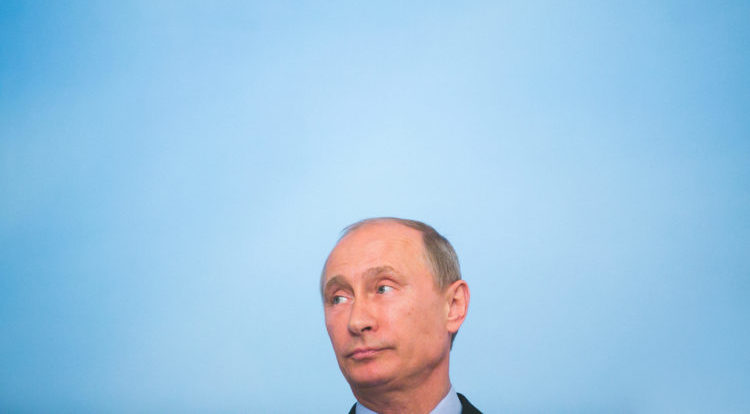Despite the title of the article, I strongly support a future NATO membership for Ukraine. It is probably the only diplomatic tool that might end the Russian aggression against Ukraine. Additionally, I am in no doubt that Ukraine’s National Security and Defence Sector will strengthen the Alliance’s ability to conduct collective defense, crisis management, and cooperative security.
Only, I do not support membership today.
During the recent Russian escalation and build-up of forces along the Ukrainian border and on temporarily occupied territories, and before the recent NATO summit, Ukraine intensified its diplomatic effort to gain a Membership Action Plan (MAP). In addition to bilateral initiatives, there has been many meetings and consultations between Ukraine and NATO.
There is a sense of frustration in the air. President Zelensky has publicly asked President Biden, “Mr. President, why are we not in NATO yet“?
In a recent interview, the president made the argument that “if EU leaders say that the security situation in Europe depends on Ukraine if we pay for that with victims, and more than 14,000 people have already died, then we must have some status. Ukraine cannot feel like a guest in the EU and NATO. We want to be a member. I think we deserved it a long time ago.”
He has stated that Ukraine “deserves to be one of the Alliance’s equally powerful countries, and [Ukraine] need to be invited.”
I disagree with President Zelensky’s assessment that Ukraine today deserves to be a NATO member.
Ukraine has for years, argued that Ukraine has defended “Europe’s security and stability, and has been a powerful outpost on NATO’s eastern flank.” Ukrainian Foreign Minister Dmytro Kuleba made the case that “Ukraine is not only a security recipient but a security donor in its region. Ukraine has been successfully countering Russian aggression for almost seven years now, protecting not only itself but a wider region between the Baltic and Black Seas.”
While I fully agree that Ukraine is defending Europe against Russian aggression, Ukraine is also doing nothing more than what any sovereign country should do; namely defending its sovereignty and territorial integrity. One does not gain (forgive my expression) “bonus points” for doing what is expected of a sovereign state.
The 2021 Brussels NATO summit: triumph or defeat for Ukraine?
To deserve membership, Ukraine must do more. In order to understand why and what, one need to understand how the Alliance works.
NATO is both a military and political alliance. It contributes to the security environment by defending democratic values, individual liberty and the rule of law, working for peace and stability across the Euro-Atlantic.
A NATO decision is the expression of the collective will of all 30 member countries. All decisions are made by consensus, after discussion and consultation among member countries. Consensus decision-making is a fundamental principle that has been accepted as the sole basis for decision-making in NATO since the creation of the Alliance in 1949.
The process is often intricate, difficult, and frustratingly time-consuming. At the end of the day, it is, however, supposed to represent the will of all member states and their populaces. The decision also reflects their shared values, principles, and the rule of law.
Just as importantly, the process enables confidence building. Trust and confidence are crucial to the North Atlantic Treaty Organization.
To deserve membership, Ukraine must adhere to the same values, principles, and the rule of law. It must build trust and confidence in 30 capitols across Europe and North America. This requires wide-ranging, sustainable, and irreversible reforms across all sectors, including (and not exclusively) the national security and defense sector.
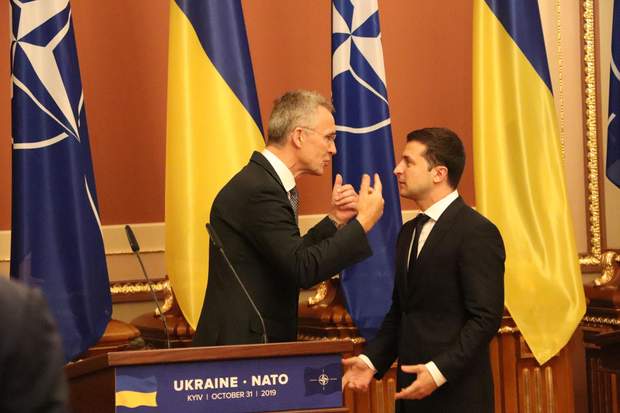
As long as there is even the slightest hint of an oligarch/vested interest control over Ukraine’s political, judicial, or security and defense sector, a Ukrainian NATO membership will never, ever be on the table. After all, why would NATO want to give (in the worst case) oligarchs the right to veto its decisions? Why would we want to risk corrupting the NATO decision process, reducing our collective security in the process?
When President Zelensky says he “would really like to get (from Biden) specifics – yes or no,” arguing that Ukraine “must get clear dates and the likelihood” of NATO membership, he is asking the wrong person. Both the President and the Parliament need to look into the mirror and reiterate the question.
Membership will not be considered before Ukraine has done what it takes to deserve it.
Blaming NATO or its member states will only distract Ukraine from its urgent need to reform. In addition, it will alienate all involved, population and partners alike.
Ukrainians deserve to experience the peace and stability that the Euro-Atlantic community has experienced since 1949.
Ukraine does, however, not deserve NATO membership as of today. That is earned when it fulfills the membership requirements, ensuring interoperability across all sectors. Military interoperability is the easiest part to achieve. The rest require (in a diplomatic language) the implementation of NATO principles and standards, “wide-ranging, sustainable, and irreversible reforms, including combating corruption, promoting an inclusive political process, and decentralization reform, based on democratic values, respect for human rights, minorities, and the rule of law”.
Translated into everyday terminology, Ukraine urgently needs to eradicate any whiff of an oligarch or vested interest control over its political, judicial, or security and defense sector.
It is hard to tell if the President of Ukraine and the Parliament misread the diplomatic messages, or if they chose to ignore them. Either way, NATO and the EU might consider adapting the diplomatic language to ensure proper understanding.
NATO and Ukraine need each other in the years to come and future membership is the logical outcome of both the aggressive Russian foreign policy as well as the much-needed reform process. NATO membership and/or military diplomacy might very well be the only diplomatic tools that can end the war on terms acceptable to Ukraine.
In the meantime, Ukraine deserves much more than softly spoken words of concern. It deserves practical help and support to close existing critical vulnerabilities to reduce Russia’s military options. The threat of further escalation will persist as long as Russia believes military power will ensure its strategic aim and objectives.
NATO needs to stop fretting about the Russian response to Ukrainian membership. After all, “nothing invites Kremlin aggression more than calls “not to provoke” Russia.”
Read also:
- Ukraine finally launches reform of Security Service. And human rights activists are worried
- Is Ukraine getting closer to NATO membership?
- Ukraine needs to focus on reforming the most crucial spheres: Head of NATO Representation to Ukraine
- NATO prepares to attack, says Kremlin propaganda amid record Russian troop buildup at Ukraine border




